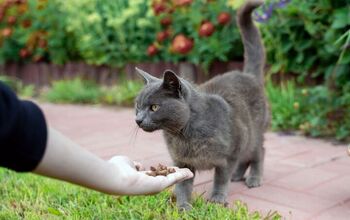Kitty Care FAQs: Quick Answers to 4 Common Cat Ownership Questions

Whether you’re brand new to cat ownership or you have included cats in your family for years, you might have a few questions about your feline companions and how best to care for them. Below is a short list of just four of the most common cat care questions to help you give your furbaby exactly what he needs.
- When Should a Cat Be Spayed or Neutered?
If you are planning on adopting a kitten or cat from a rescue organization or animal shelter, they may ensure that your pet will be spayed or neutered prior to allowing you to take your companion home with you. That was easy!
Related: Top 5 Essential Books for New Cat Owners
Like other topics in the veterinary field, there are some conflicting opinions about when it is best to spay or neuter a kitten, with some experts recommending that you wait until the animal is around 6 months of age and others recommending waiting until the kitten weighs 2 lbs. Also, some research has shown that spaying females prior to their first heat might be beneficial in terms of helping to prevent mammary gland tumors (female kittens could go into their first heat when they are just 4 months old).
Because of this conflicting information, it is best to find a trustworthy veterinarian who can give you personalized advice on when to spay or neuter your kitten.
- What Should I Do If My Cat Is Spraying?
Spraying, which is a method used by kitties to mark their territory, is seen more often in cats that haven’t been spayed or neutered. This is why some experts recommend neutering your cat before 6 months of age, as it might help to prevent spraying.
Sometimes, though, even a neutered male may spray. This could be a sign that your kitty feels threatened, stressed, or insecure, especially if he lives with other felines. If that’s the case, you can try to reduce your pet’s fear and anxiety by using feline pheromone sprays and making adjustments to your cat’s environment to encourage peaceful cohabitation amongst your furkids.
Related: Top 5 Online Resources for Cat Owners
Working with your veterinarian or a feline behaviorist might give you clearer insight into why your cat is spraying and what can be done to resolve the issue.
- Can My Indoor Cat Get Fleas?
Just because your kitty lives indoors doesn’t guarantee that he’ll never get fleas. Because these parasites can be found in the environment, they may jump on you, causing you to bring them into your house, where they’ll find your cats.
Regularly grooming your cats with a flea comb and checking for live fleas and flea dirt could help to alert you to their presence as soon as possible. If you do detect fleas, there are a variety of treatments available, from shampoos to topical remedies, that you can try, in addition to keeping your home clean to stop the life cycle of the fleas and remove them completely.
- Can My Kitty Be Trained?
Cats have a reputation for doing what they want, which can make them a bit of a challenge to train, but it isn’t impossible. If you put the time in, your kitty can even learn to sit on command and perform tricks.
When it comes to training your kitty, keep the sessions short and use rewards, such as treats. You can also use a clicker. And even when you’re training your cat to follow the rules of the house, reward positive behaviors to reinforce them. Don’t punish your cat, as that will cause stress, anxiety, and fear.
Just Give Your Cat Plenty of Love!
Like other pets, cats enjoy being included as part of the family, and following a few basic rules will help you keep your kitty healthy and happy. Talk to your vet or a pet nutritionist about the highest quality diet for your particular kitty, invest in a variety of toys to let your cat exercise and release energy in a fun way, and keep his litter box clean. As you get to know your feline friend, you’ll be able to provide him with exactly what he needs to be relaxed and content.

Lisa Selvaggio is a freelance writer and editor, and our resident cats-pert, with certifications in pet nutrition and pet first aid. She enjoys producing content that helps people understand animals better so they can give their pets a safe and happy home.
More by Lisa Selvaggio























